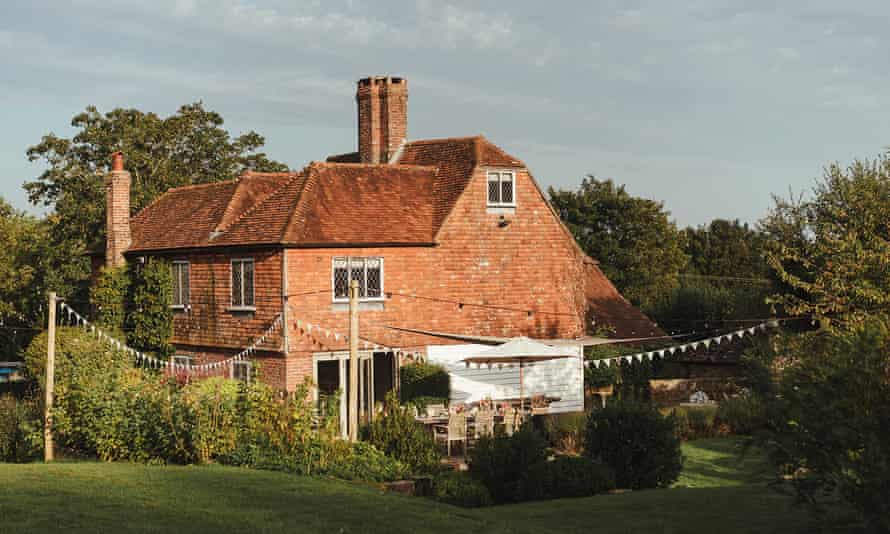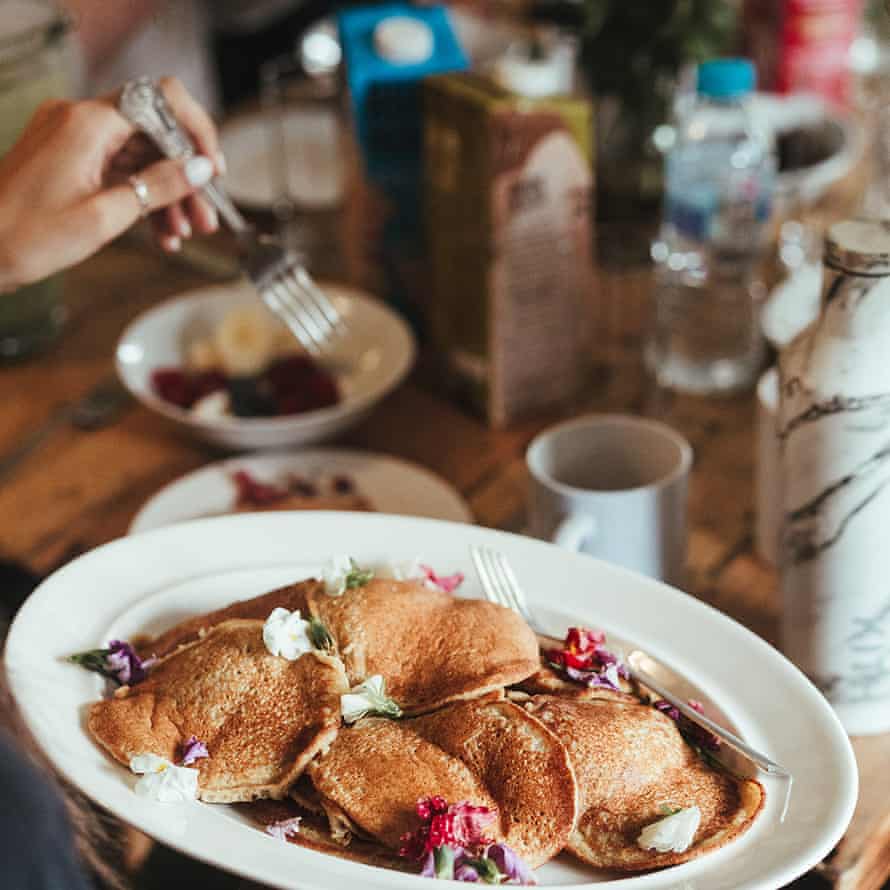At 8am, six women and one man are saluting the sun in an airy barn in Sussex. They are focused on their breathing, visualising their internal organs and letting go of intrusive thoughts. I am one of them. But I’m struggling to remember which leg is which.
All my life, I have suffered from left-right confusion. A soothing voice suggesting I place my right foot over my left knee induces an anxiety that does not help empty my mind. I’m also wondering what there will be for breakfast.
I have come to Fair Oak Farm for a three-day wellbeing retreat: yoga, pilates, gentle exercise and massage punctuated with vegetarian food and peaceful strolls through the East Sussex countryside. After 18 months of hunching over a laptop at my dining-table-cum-desk, I’m ready to stretch, bend and strengthen my core.

Among our small group are an exhausted NHS worker, a university lecturer going through a stressful divorce, a retired teacher with a Covid-challenged transatlantic relationship, and a gas engineer on an admirable journey of self-discovery.
Some are practised in yoga and mindfulness; I’m a novice, stiff and creaky but keen to learn. Everyone is welcome – the session leaders are warm and encouraging, never once making me feel inadequate. As an introduction to the burgeoning market in retreats and wellbeing breaks, this was a good choice.
Wellbeing tourism – defined as “travel associated with the pursuit of maintaining or enhancing one’s personal wellbeing” – was estimated to be worth $639bn (£467bn) worldwide in 2018, contributing to an overall global “wellness economy” valued at $4.5tn. Pre-Covid, the market was forecast to grow to $919tn – 18% of all global tourism – by 2022.
Weeks before the pandemic struck, the UK travel association Abta said one in three people were planning to incorporate wellness activities, such as yoga, meditation or spa treatments into their holiday. The pandemic has interrupted the pace of growth, but there are signs that the retreat market is rebounding as restrictions ease.
Travelling to improve one’s health, mental or physical, is not new. For centuries people have sought the benefits of hot springs or mountain air, or have joined religious or spiritual communities for periods of reflection or solitude. Before yoga classes were available in every town and on every computer screen, people travelled east to learn from gurus.

At the luxury end, 21st-century wellness breaks can be eye-wateringly expensive, restricting access to people in the more affluent countries of the developed world. But the range is enormous, with some spiritual and meditation centres offering retreats for free or a small daily donation.
According to the US-based Wellness Tourism Association, demand is being driven by an ageing boomer generation wanting to live healthier for longer, and a millennial generation that makes good health a priority in their lives. Plus, more generally, “a stressed out population living in an increasingly troubled world”, said Anne Dimon, the association’s president.
Nat Segnit, author of Retreat: the Risks and Rewards of Stepping Back From the World, published in June, said he was not surprised at the growing interest. “Half the world’s population lives in urban settlements. We are penned in, if not literally by overcrowded living arrangements then by the stresses of modern existence – overwork, family demands, social media. And more broadly by the cultural, political and environmental problems that press in on us daily. So we might want to get away from all that.”
Segnit’s fieldwork ranged from upmarket sanctuaries in Ibiza and California – “it’s very nice to meditate or practise yoga in beautiful surroundings” – to an ultra-ascetic 10-day silent retreat at a meditation centre in Salford run on voluntary donations. This, he said, was “the only experience that I could describe as life-changing or transcendent. It was hardcore and extremely unpleasant to begin with – and then revelatory.”
He was troubled by the perception that retreats are places of “white privilege” and the “structural inequality” at the heart of a retreat due to the indirect costs of taking time off work or arranging childcare.

Meanwhile, Dimon said some companies were guilty of “wellness washing”. Terms such as “wellbeing” and “transformative” were used strictly for marketing purposes, and offer nothing truly substantial to back up their claims and promises.
In 50 hours spent at Fair Oak Farm, we managed nine sessions of yoga, pilates and mat-based toning with longish breaks for walking among the resident peacocks and alpacas, reading or gazing out over fields bathed in glorious autumn sunshine.
Kiri, our yoga instructor, was careful to suggest options for most poses to accommodate both the supple and the stiff among our number. Along with left-right confusion, balance was a major challenge for me; child’s pose was my comfort zone.
Emily, our pilates teacher, homed in on “pandemic posture” – slouching, slumping and hunching. In a dedicated beauty hut, Lauren released my knotted back and shoulders in a 45-minute massage.
We all ate together round a table a few feet from the kitchen where chef Lottie Brook prepared colourful, nutritious, moreish dishes, chatting about life, love, lockdown, children, grandchildren and pets. I slept in a peaceful eco-lodge treehouse; others were in shepherd’s huts, converted barns or the main Grade II-listed farmhouse. The atmosphere was relaxed and homely: there was no ban on phones (though few were in evidence), we had wine with supper and coffee at breakfast. It was over far too quickly.
Disengagement from the pressures of everyday life is not always easy. But stepping back – whether for a 45-minute yoga session, 10 minutes of meditation or contemplation aided by an app, or several days of retreat – is a chance to reset- something that most of us would benefit from.
Accommodation was provided by Fair Oak Farm. The next retreat is 3-5 December, and costs from £565pp inclusive of accommodation, meals and sessions. Additional dates for 2022 are available





